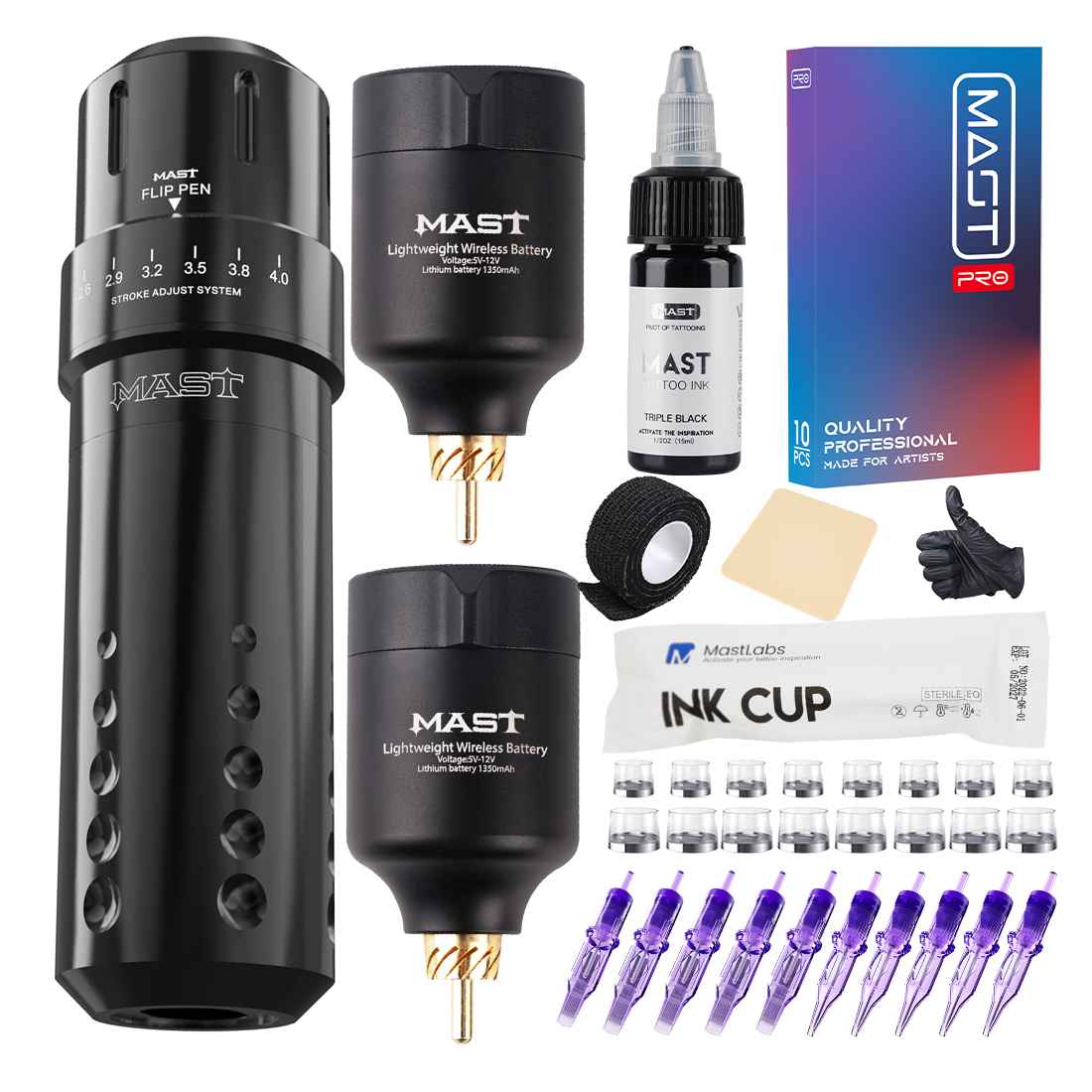In the realm of self-expression and individuality, tattoos hold a prominent place.
As the allure of body art continues to captivate young minds, the question arises: Is 17 a good age to get a tattoo?
Statistics reveal a growing interest in tattoos among teenagers, with a significant number contemplating their first tattoo by the age of 17.
Throughout this blog post, we will explore various facets of the issue, including legal considerations, health implications, social factors, and emotional preparedness.
Let’s get to it. Shall we?
Legal Considerations
Navigating the legal landscape surrounding tattoos at a young age is crucial to ensure compliance and avoid potential repercussions.
Let’s explore the age restrictions, parental consent requirements, and the legal consequences associated with underage tattooing.
1. Age restrictions and parental consent
Tattoo regulations vary across different countries, each with its own minimum age requirements.
For instance, in the United States, the age of consent for tattoos ranges from 16 to 18, depending on the state.
Internationally, countries like the United Kingdom and Australia generally require individuals to be 18 years old.
However, some regions may permit tattoos at a younger age with parental or guardian consent.
In the United States, for instance, teenagers as young as 16 can legally get tattoos with written consent from a parent or legal guardian.
This provision aims to balance personal freedom with parental involvement, acknowledging the importance of informed decision-making while safeguarding the well-being of minors.
2. legal consequences for underage tattooing
The consequences of tattooing minors without proper consent can be severe.
Tattoo artists and establishments found in violation of the age restrictions and consent regulations may face hefty penalties, fines, and even license revocation.
These measures are in place to protect young individuals and hold accountable those who disregard the legal procedures.
Moreover, minors who choose to get tattoos without adhering to the legal requirements may face potential legal implications themselves.
If discovered, they could be subjected to legal consequences such as fines, community service, or other forms of legal intervention, depending on local laws and regulations.
It is essential for tattoo artists, establishments, and young individuals alike to understand and respect the legal framework surrounding tattoos at a young age.
By doing so, they not only avoid legal troubles but also foster an environment of responsibility, ensuring the well-being and rights of all parties involved.
Also Read: How old do I have to be to get a tattoo?
Health Considerations
A tattoo is not just an artistic statement; it involves permanently etching ink into the skin.
When considering getting a tattoo at 16, it is vital to explore the health considerations associated with this decision.
The health aspect goes beyond the aesthetic appeal and delves into the well-being of the individual.
1. Skin maturity and development
Just like a canvas needs to be prepared before a masterpiece can be created, the skin also requires a certain level of maturity for tattooing.
Younger individuals may still have developing skin, which can pose potential risks and complications during the tattooing process.
The skin’s ability to retain ink and heal properly is influenced by its maturity.
Tattooing on immature skin can result in ink spreading, blurring, or fading over time, leading to dissatisfaction with the tattoo’s appearance.
2. Allergic reactions and infections
While tattoos are generally safe when performed under proper conditions, there is a higher risk of adverse reactions in younger individuals.
Teenagers may be more prone to allergic reactions to tattoo ink ingredients, such as certain pigments or metals.
Additionally, the immune system of younger individuals may not be as robust as that of adults, making them more susceptible to infections during the healing process.
To minimize these risks, proper aftercare and hygiene practices are crucial.
Following the tattoo artist’s instructions, including regular cleaning, using recommended ointments, and avoiding exposure to potential contaminants, can significantly reduce the chances of infections and allergic reactions.
Remember, taking care of your skin and understanding its maturity level are essential aspects of ensuring a healthy tattooing experience.
Engaging in open conversations with professional tattoo artists and seeking their expertise can provide valuable insights and guidance on the compatibility of your skin maturity with tattooing procedures.
Let’s explore the intricacies of skin health and how it intertwines with the art of tattooing, ensuring a safe and satisfactory experience for all tattoo enthusiasts.
Also Read: Can you be 14 to get a tattoo?
Social Considerations
In the realm of tattoos, it is not just the legal and health aspects that require consideration; the social implications play a pivotal role as well.
Tattoos have the power to leave an indelible mark on one’s personal and professional life, making it essential to explore the long-term implications and foster individual maturity in decision-making.
1. Long-term implications and personal growth
When contemplating a tattoo at 16, it is crucial to acknowledge the potential changes in personal preferences and values over time.
What might seem like a captivating design today may not hold the same significance or appeal in the years to come.
As individuals navigate their journey of personal growth and self-discovery, their perspective on tattoos may evolve.
Moreover, tattoos can significantly impact future career prospects and societal perceptions.
While attitudes towards tattoos have become more accepting in recent years, certain industries and professional environments may still hold conservative views.
Visible body art can sometimes pose challenges when seeking employment or advancing in certain career paths.
It is vital to weigh the potential consequences and consider the long-term implications of tattoos on one’s professional trajectory.
2. Individual maturity and informed decision-making
The permanence of tattoos demands thoughtful introspection and informed decision-making.
At 16, individuals may not fully grasp the lifelong commitment and implications associated with body art.
Understanding the irreversible nature of tattoos is crucial before embarking on this artistic journey.
Encouraging a sense of individual maturity empowers teenagers to make responsible decisions that align with their values and aspirations.
Open communication with parents or guardians plays a vital role in this process.
Engaging in honest and respectful dialogue allows for the exchange of perspectives, concerns, and expectations.
Parents can provide guidance, drawing from their own experiences and knowledge.
This collaborative approach fosters a sense of trust and ensures that young individuals make informed choices regarding tattoos.
Also Read: Is it okay to have a tattoo at 16?
Emotional and Mental Preparedness
Getting a tattoo is not merely a physical act; it is an emotional and mental journey.
Before taking the plunge, it is essential to delve into the depths of our hearts and minds, evaluating our commitment, significance, and emotional readiness.
1. Commitment and Significance
Tattoos hold a profound significance in our lives, representing our beliefs, experiences, and personal stories etched into our very being.
Therefore, it is crucial to assess the level of commitment and significance behind the tattoo.
Take a moment to reflect on the reasons driving the desire for body art. Is it a fleeting trend or a meaningful symbol that resonates with your soul?
Avoid impulsive choices and strive for a well-thought-out decision that you can proudly carry for a lifetime.
Consider the words of Maya Angelou, “A tattoo is a true poetic creation, and is always more than meets the eye.”
As a tattoo is grounded on living skin, so its essence emotes a poignancy unique to the mortal human condition.”
Let your tattoo be a poetic expression of your innermost self, a testament to your journey and identity.
Also Read: Pros and cons of getting a tattoo at 16
2. Emotional Readiness and Considerations
Tattoos have the power to evoke strong emotions and hold lasting significance.
Before embarking on this transformative art form, it is vital to reflect upon your emotional maturity and stability.
Take a moment to evaluate your emotional readiness to handle potential regrets or changes in personal feelings.
Life is a tapestry of experiences, and our perspectives may shift with time. What may resonate deeply with you today might evolve or change in the future.
While it is impossible to predict the twists and turns of life, consider the potential impact of a tattoo on your emotional well-being.
Are you prepared to embrace the evolution of your beliefs, values, and aspirations while cherishing the memories that led you to your tattoo?
Remember, tattoos can be empowering and liberating, but they also carry a weight of permanence.
By taking the time to delve into your emotional landscape, you can ensure that your tattoo is not only a stunning work of art but also an expression of personal growth and authenticity.
Also Read: Will my tattoo stretch if I get it at 18?
FAQs
Can I get a tattoo at 17 without parental consent?
No, in most countries, including the United States, individuals under 18 need parental or guardian consent to get a tattoo.
Are there any countries where the legal age for tattoos is 17?
Yes, there are countries where the legal age for tattoos is 17 with parental consent, such as Canada and Australia. However, it’s essential to check the specific laws of each country or region.
What are the risks of getting a tattoo at a young age?
Risks include allergic reactions, infections, scarring, and potential dissatisfaction with the tattoo as personal preferences and values may change over time.
How can I talk to my parents about getting a tattoo at 17?
Be open and honest with your parents, explaining your reasons and discussing your thoughts and concerns. Show maturity, present researched information, and be receptive to their perspective.
What are alternative ways to express creativity and individuality if not getting a tattoo at 17?
Explore temporary tattoos, body art accessories, henna designs, or body paint.
Additionally, consider other creative outlets like fashion, jewelry, hairstyles, makeup, or artistic hobbies such as painting, writing, or music.
FAQs
Can a 17-year-old get a tattoo in Texas?
In Texas, the legal age to get a tattoo without parental consent is 18. Minors who are 17 years old or younger can obtain a tattoo in Texas with written consent from a parent or legal guardian.
It is important to note that some tattoo studios may have their own policies regarding age limits and consent requirements, so it is advisable to contact the specific studio for accurate information.
Also Read: Can you get a tattoo at 15?
Conclusion
In exploring the question, “Is 17 a good age to get a tattoo?” we have delved into various factors that must be considered before making such a decision.
From legal and health considerations to social, emotional, and mental aspects, it is clear that getting a tattoo at 17 requires thoughtful evaluation.
It is vital to adhere to the legal requirements in your country or region, as obtaining parental consent is often necessary.
Additionally, understanding the potential health risks associated with tattooing on developing skin is crucial.
Equally important are the social, emotional, and mental aspects of getting a tattoo.
Evaluating the significance, commitment, and emotional readiness is essential to avoid potential regrets or conflicting feelings in the future. I encourage open dialogue between teenagers and their parents or guardians.
Engaging in honest conversations, sharing concerns, and considering different perspectives can help make informed decisions aligned with personal circumstances and readiness.
Ultimately, the appropriateness of getting a tattoo at 17 varies for each individual. It is essential to carefully evaluate the multifaceted considerations discussed in this blog post, ensuring that the decision reflects personal values, aspirations, and overall well-being.






